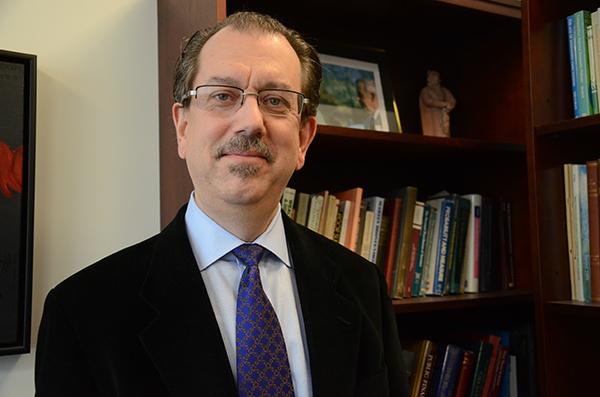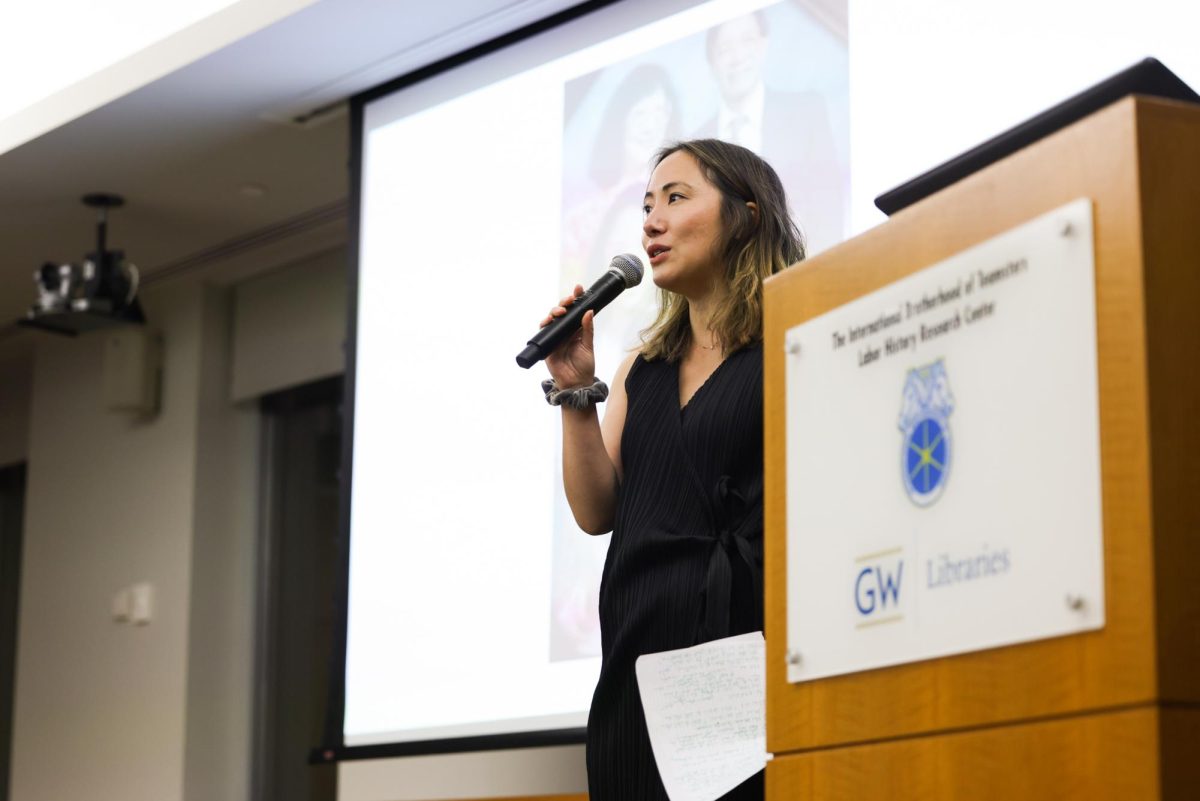Inside economics professor James Foster’s office, a bookshelf is lined with pictures of him alongside Nobel Prize winners and boxes of research, while a painting incorporating his famous economic formula stands out on the wall.
The office is about to get a new decoration.
On Monday, he will collect the Oscar and Shoshana Trachtenberg Prize for Faculty Scholarship, an award that recognizes outstanding research accomplishments and is given to one faculty member who conducting noteworthy research. Previous award recipients include some of GW’s biggest research superstars, like international affairs professor Martha Finnemore and chemistry professor Akos Vertes.
“I recognize some of the people on the list of winners before me and they are the people I look up to as being key researchers here at GW,” Foster said.
Foster, whose headshot is emblazoned on the wall of the Marvin Center as a GW dynamo, is a welfare economist who arrived at GW four years ago from Vanderbilt University after forging a career full of research. He has been cited in a record number of papers and his formulas have been adopted by countries like Mexico and the Philippines.
His research interests lie in the intersection economic development and poverty, looking to create a simple way to measure those problems in order to solve them. His approach to the topic has changed over the years, he said, from looking at poverty from just a financial standpoint to trying to incorporate more holistic elements like education, health care and living conditions.
“I’m really interested in trying to create ways of evaluating things like poverty, inequality, well-being, which can be easily explained to people but have real substance and can be used by policy makers to greater end, to help solve the problem,” Foster, 58, said.
Several world governments, as well as the United Nations, have picked up this newer technique – the multidimensional poverty index – within the last four years. The MPI is used to more accurately measure the level of poverty in a country, proponents say.
Foster, the director of the Institute for International Economic Policy at the Elliott School of International Affairs, tries to explain his research so that people with little to no background in economics can understand – and with palpable enthusiasm. With each point he brings up, his voice gets louder and finally he adds, “It’s been tons of fun.”
Brady Baldwin, a senior, has been working on a project under the guidance of Foster as his faculty adviser. Baldwin’s research, which focuses on the correlation between students’ perceptions of their teachers and future economic well-being, converges with Foster’s interest in poverty and economic development.
Baldwin recounts a time that Foster was running late to meet with him, so in order to get the full amount of time they had scheduled, Foster called Baldwin from his car and began to talk about the project right then.
“I’m thankful because professor Foster is so busy, he has his own research to do, but he is so willing and eager to help me out,” Baldwin said. “A 30-minute conversation with him can be more helpful than 10 hours of research on my own.”
But Foster, who teaches courses on economic development, is eager to give credit where it’s due when it comes to classroom skills. His wife, assistant professor Irene Foster, teaches introductory economics courses, and has had a lot to teach her husband about teaching. One lesson he’s learned is to make the material more relevant to students.
“I’m a theoretical guy, I tend to go off, and she says, ‘Motivate it. Make sure people understand why they’re doing what they’re doing.’ That way everyone understands, they feel like the work makes sense, they want to do the studying, they want to listen to you,” Foster said.
To make his game theory applicable, Foster has the chief economist at the World Bank, Kaushik Basu, come help teach the class.
To Foster, teaching is the fun part, especially when researching gets tiring.
Irene recounted a time when they both taught at Vanderbilt and in the middle of one of his lectures, her husband left the room saying he was going to bring in a guest lecturer.
“He walks back in and the rest of the class he does in an Indian accent,” she said.
Foster previously worked at Vanderbilt and Purdue universities, but he said GW has brought a unique experience. Not only does D.C. offer opportunities to have the chief economist of the World Bank contribute to some of his classes, but he finds the type of students here to be of a different breed that now inspires his own research.
“They’re interested in what’s happening in the world, and therefore it’s easy to suck them into a class by linking what’s going on in the world to what you’re doing,” Foster said.






